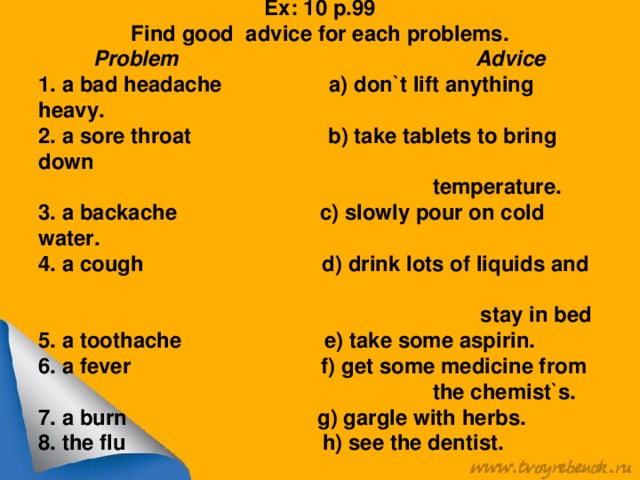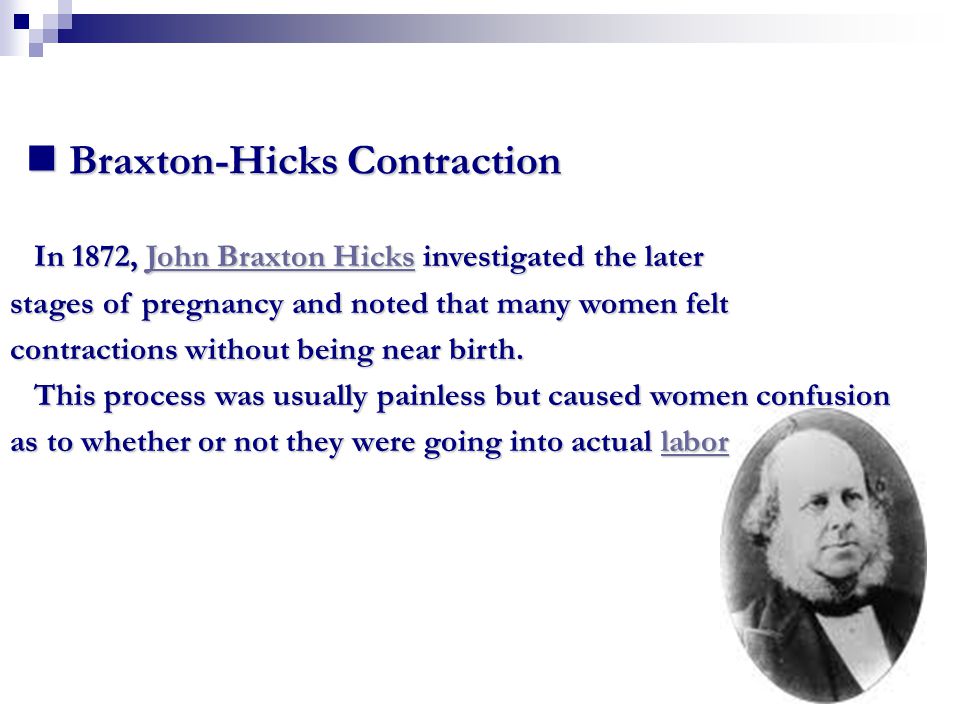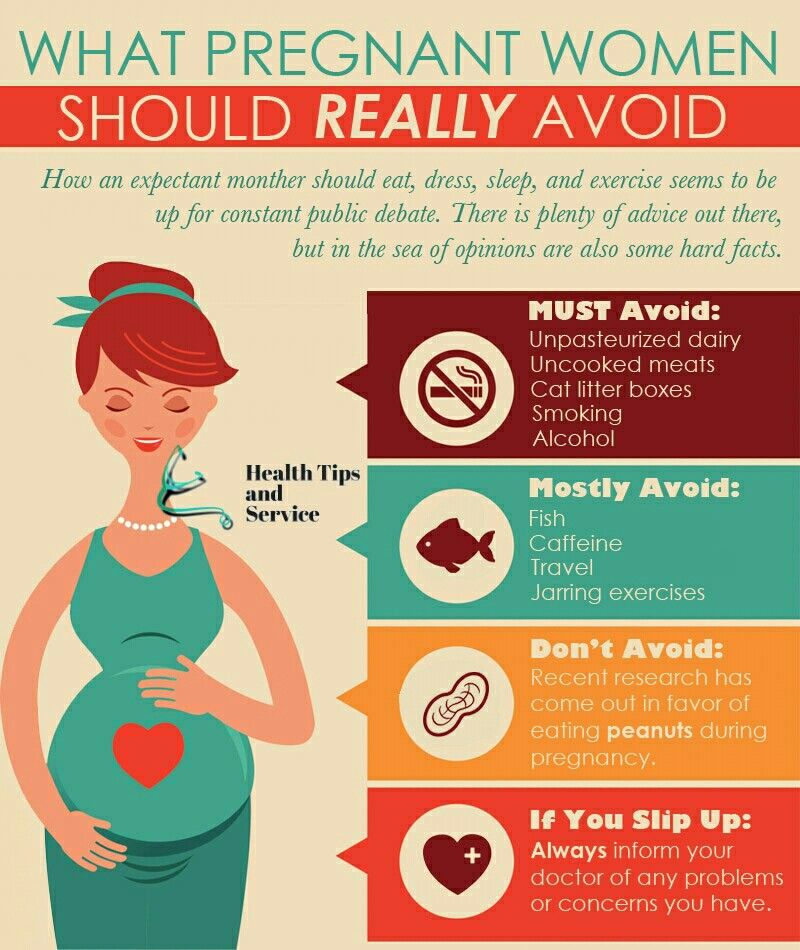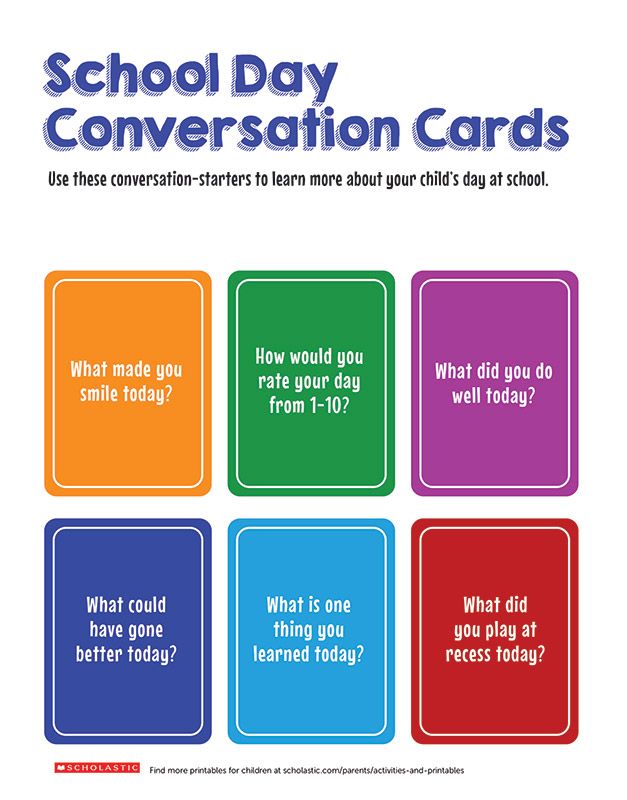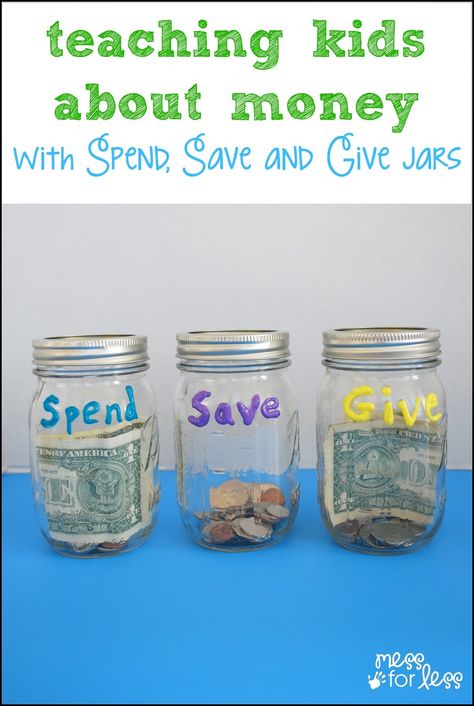Sleep for 11 week old baby
Your 11-Week-Old Baby
Starting Schedules
Life probably still feels like a 24-hour awake cycle with bursts of sleep thrown in here and there. You’re (hopefully!) in the home stretch and on your way to having a more reliable schedule with more substantial sleep.
At this stage of baby’s development, they are getting into a more natural sleep rhythm, taking three naps a day (early morning, late morning/early afternoon and late afternoon), and going to bed at around the same time each night. Try to keep the nap times consistent so you can anticipate when your little one needs more ZZZs (before the crankiness sets in), and—although it’s tough—try to avoid too many naps on the go.
Keep up with your routines so your baby gets the sleep they need (and you’ll get a nice little break!). Schedules are usually a work in progress, but consistency is key.
Try This: Write Down Questions for Your Pediatrician
Even though you’re a regular at the pediatrician’s office during the newborn months, there’s usually an important question you wished you remembered to ask: Is there a such thing as too much drool? Will I ever sleep again? Does this (insert concern of the day) look normal? Take a few minutes to jot down a master list before you head to your appointments. Or better yet, create an ongoing list on your phone.
There are tons of list-making apps available (like Todoist), or keep it simple and use an app that’s built into your phone, like Notes for those with an iPhone. This way, anytime a thought pops into your head that you want to ask the doc, you can add it on the fly. During the appointment, just run down the list.
Milestone: Getting Grabby
Your baby’s cute little fingers are starting to work a little harder as they reach, pull and grab. Offer different objects to hold on to, like a rattle, an Oball (all of the holes are really helpful for newbies!), Sophie the Giraffe or a favorite teether.
Help your kiddo master this new skill by guiding their fingers and clasping them around a toy. Heads up: your hair may be next, so do yourself a favor and just put it in a ponytail. Ditto for dangling jewelry.
Sleep Tip: Naptime in the Crib
During the first few months, newborns are often happiest snoozing in small, cozy spots like a bassinet or sleeper. They’ll even fall asleep in a room with the TV on, and especially while being fed and/or rocked. But now is a good time to try and transition naptime to the crib. We know it’s hard to mess with a good thing, but you’ll be way better off in the long run if you start to minimize snooze time in a sleeper and help your baby adjust to their crib.
They’ll even fall asleep in a room with the TV on, and especially while being fed and/or rocked. But now is a good time to try and transition naptime to the crib. We know it’s hard to mess with a good thing, but you’ll be way better off in the long run if you start to minimize snooze time in a sleeper and help your baby adjust to their crib.
Pelvic Floor Recovery
Even if you received two thumbs up from your healthcare provider at your 6-week follow-up visit, your pelvic floor takes time to recover. This important group of muscles extends from the pubic bone to the tailbone, helping to support your organs, maintain sexual function and keep you from peeing when you sneeze (among many other things).
Pelvic floor recovery has traditionally not been prioritized as a part of postpartum recovery, but fortunately, that is beginning to change. Ask your healthcare provider what you can do to help heal and strengthen your pevlic floor. This may include:
- Do your Kegels: Kegels are incredibly beneficial exercises, but the trick is doing them properly and consistently.
 Getting an expert (like your healthcare provider or a physical therapist)to ensure you’re doing this exercise the right way will increase how effective it is. Generally, to get started, tighten your pelvic floor muscles (the ones you would use to hold pee mid-stream), hold the contraction for five seconds and then relax for five seconds. Do this at least five times in a row. Work your way up to more reps and longer durations (10 seconds at a time). Remember to breathe and don’t clench your butt or abdomen.
Getting an expert (like your healthcare provider or a physical therapist)to ensure you’re doing this exercise the right way will increase how effective it is. Generally, to get started, tighten your pelvic floor muscles (the ones you would use to hold pee mid-stream), hold the contraction for five seconds and then relax for five seconds. Do this at least five times in a row. Work your way up to more reps and longer durations (10 seconds at a time). Remember to breathe and don’t clench your butt or abdomen. - See an expert: Talk to your doctor and get a referral to a physical therapist that specializes in postpartum health, especially if you’re having symptoms like incontinence, pain during sexual activity or ab separation. Often, seeing a specialist is a great first step to make sure you are healing properly. They’ll be able to pinpoint underlying issues and create a plan to help you properly heal and stabilize your core and pelvic floor.
- Exercise: Workouts like pilates and yoga can help you tone and strengthen your core and pelvic floor muscles.
 As long as you’re cleared for excerise, give these a try. And don’t overdo it. Be sure to ease your way back into a workout routine and listen to your body first.
As long as you’re cleared for excerise, give these a try. And don’t overdo it. Be sure to ease your way back into a workout routine and listen to your body first.
Parenting Podcasts
What makes washing bottles or a walk with a snoozing baby more interesting? Listening to an awesome podcast. Here are a few favorites that provide great insight, perspective and helpful advice on parenting.
- Simple Families: Need a little more order among the chaos? From mealplanning to mindfulness, toy decluttering to workout tips, you’ll get awesome solutions to simplify life and save your sanity.
- The Longest Shortest Time: For those living in the newborn haze and well beyond, each episode features fascinating stories and interviews about the ups and downs of parenthood from experts and fellow parents.
- Coffee + Crumbs: If you love this blog’s honest (often tear-jerking!) essays on motherhood, you’ll love their podcasts.
 Keep the tissues handy.
Keep the tissues handy. - One Bad Mother: Need a laugh? If you currently have spit-up in your hair, then yes, yes, you do. Look no further to commiserate on the wild ride that is motherhood.
This information is provided for educational and entertainment purposes only. We do not accept any responsibility for any liability, loss or risk, personal or otherwise, incurred as a consequence, directly or indirectly, from any information or advice contained here. Babylist may earn compensation from affiliate links in this content. Learn more about how we write Babylist content and the Babylist Health Advisory Board.
How Much Sleep Does an 11-Week-Old Baby Need?
We've rounded up expert guidance tips on your newborn's sleep schedule.
By Ellen Schmidt Updated April 19, 2022
A newborn’s sleep schedule can sometimes be difficult to decipher: How much sleep does your baby actually need? And are they getting enough sleep? If you’re wondering about how much sleep your 11-week-old baby should be getting each day, we’ve got some answers for you.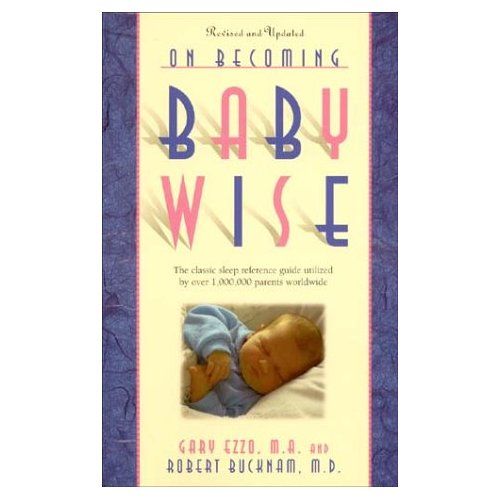 Because sleep is so vitally important for your baby (and you, too, for that matter!), we’ve created a helpful week-by-week guide to assist you in navigating the early months of your baby’s sleep journey. You’ve got this, mama.
Because sleep is so vitally important for your baby (and you, too, for that matter!), we’ve created a helpful week-by-week guide to assist you in navigating the early months of your baby’s sleep journey. You’ve got this, mama.
To help you navigate these early weeks of newborn sleep, we’ve put together a handy sleep schedule of how much your 11-week-old is sleeping, plus some tips on these early days of sleeping.
How much sleep does an 11-week-old baby need?
According to The Baby Sleep Site, at 11 weeks old your baby will be sleeping about 14-16 hours total each day—about 10 hours at night, and 4-6 hours total during the day. By eleven weeks, your baby will even be ready for a more predictable bedtime and bedtime routine, too. While this can be flexible, an 11-week-old’s bedtime should fall somewhere between 7 and 10 p.m. The first step in creating a difference between baby’s nighttime sleep and daytime sleep is having an official bedtime, which will aid in baby’s development.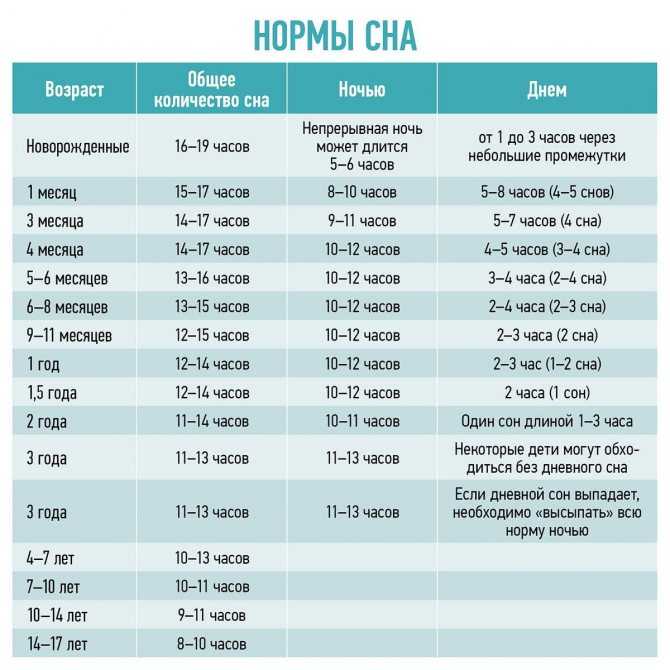
In creating a bedtime routine, keep it short (babies can become overtired otherwise). Consider relaxing activities, like singing a lullaby and reading a simple bedtime story. While some babies do find an evening bath soothing, others tend to get excited during baths, which is the opposite effect you are going for at bedtime.
Related: Baby Feeding Guides & Schedules
“Your baby has almost graduated from the newborn stage and, hopefully at this point, you are starting to see a bit more consistency in their sleep patterns. If you still feel like your baby’s sleep is chaotic and unpredictable, don’t panic! It is still developmentally normal for sleep to be disorganized,” says Rachel Mitchell, founder of My Sweet Sleeper. “You may also notice that your baby doesn’t need to be fed as frequently overnight. The average amount of night feedings in this stage is between 1-2 as long as your baby is getting adequate nutrition throughout the day. Typically, I recommend trying to book feeds at each end of the night.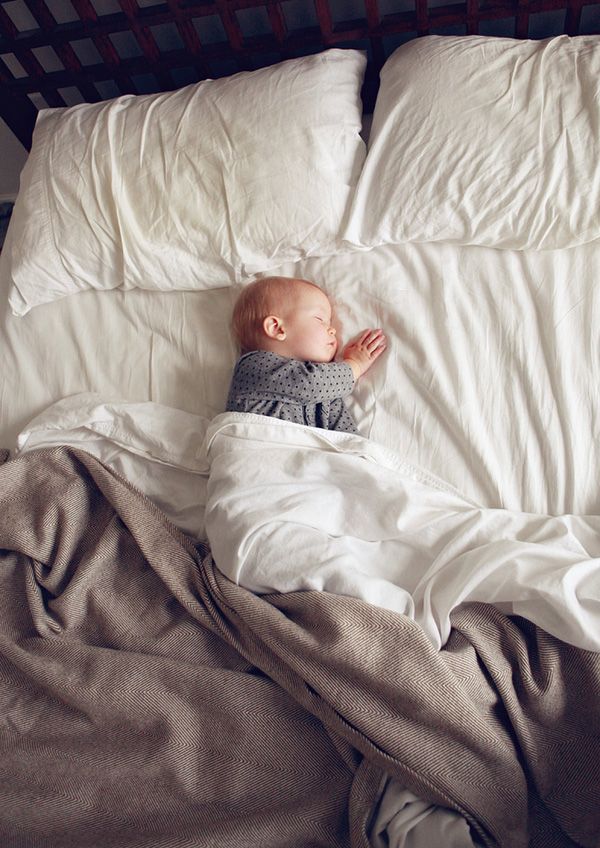 For example, feeding about 4 hours after your baby has gone to sleep (between 10-11:30 p.m.) and then again sometime between 4-5:30 a.m. All babies are going to vary when it comes to feeds in this stage and you want to ensure that your baby is continuing to gain weight and speak with your pediatrician before you decide to drop a night feed.”
For example, feeding about 4 hours after your baby has gone to sleep (between 10-11:30 p.m.) and then again sometime between 4-5:30 a.m. All babies are going to vary when it comes to feeds in this stage and you want to ensure that your baby is continuing to gain weight and speak with your pediatrician before you decide to drop a night feed.”
To assist in determining baby’s schedule, while keeping in mind bedtime and the evolving differentiation between nighttime sleep and daytime sleep, we have a sleep schedule of what one 24-hour period with an 11-week-old baby would look like. (Note: this is meant to be a rough guide of what you can expect your baby to do; however, this is not meant to be a strict sleep schedule to adhere to.)
11-week-old baby sleep schedule
Wake windows for an 11-week-old
A wake window is the period of time a baby can stay awake in between naps without becoming overtired (because newborn babies are unable to self-regulate their own sleep patterns, they can become overtired instead of simply just falling asleep).
The average wake window for an eleven-week-old newborn is 1 to 1.5 hours, according to Amy Motroni, a baby and toddler sleep consultant. While baby is awake, it’s time to for eating, playing and getting a diaper change. As your baby approaches 3 months old, they will likely be staying awake a bit more during the day, while some naps may be getting shorter.
Related: 3-month-old baby milestones
Sleep tips for newborns:
As you work on creating a daytime and evening sleep schedule for your baby, establish a bedtime routine and hopefully get a bit more sleep yourself, it’s important to consider the following sleep tips for newborns as well:
- Always place your baby on their back to sleep, not on the stomach or side. This helps to reduce the risk of Sudden Infant Death Syndrome (SIDS) and Sudden Unexplained Infant Death (SUID). The American Academy of Pediatrics initiated the “Back to Sleep” movement in 1992, and rates of SIDS/SUID have decreased dramatically since.

- Do not put anything else in the crib or bassinet. Keep plush toys, pillows, blankets, loose sheets, and bumpers out of your baby’s crib or bassinet for similar reasons as above.
- Avoid overheating. Even though they’re itty-bitty babies, you can dress them according to the room’s temperature. Don’t over-swaddle or over-layer their clothing.
- Try a pacifier. If they reject it, that’s OK. If it falls out, that’s OK. If you’re breastfeeding, you may want to wait until baby is comfortable with latching and effectively nursing before introducing a pacifier.
- Use a white noise machine. Whether your house is quiet as a mouse, or you’ve got other kids running around making noise, a white noise machine can help your baby feel soothed (and possibly tune out) in their surroundings.
- Snuggle it up. Your newborn wants your cuddles as much as you want to give them—especially if they’re fussy. Swaddle them up snugly, then rock them until they quiet down. There’s no such thing as holding a newborn too much (for safety reasons, don’t fall asleep with them in your arms.
 )
)
A version of this story was published August 24, 2021. It has been updated.
Children's Clinical Medical Center of Chita
Sadly, pediatricians are increasingly stating the fact that modern children do not get enough sleep. And the lack of sleep in a child is much more dangerous than the lack of sleep in an adult. Children who sleep significantly less than normal grow more slowly and develop worse than their peers. This is easily explained.
First, growth hormones are produced during sleep.
Secondly, a good sound sleep contributes to a better memorization of previously received information. nine0005
Thirdly, general weakness due to lack of sleep makes it difficult to fully assimilate information.
In addition, the immune system is weakened in children with little sleep and the likelihood of developing diseases of the cardiovascular system increases. Sleep-deprived children become nervous, absent-minded, fussy. This applies to all children, regardless of their age: Babies and teenagers alike should sleep well.
This applies to all children, regardless of their age: Babies and teenagers alike should sleep well.
Parents are obligated to provide their child with adequate and healthy sleep. nine0005
For children, as for adults, the normal amount of sleep is individual. Some kids sleep more, some less. The figures given by doctors are an average. In general, they should strive for. These figures reflect the total amount of sleep per day, that is, taking into account both night sleep and daytime sleep.
- Newborn baby sleeps an average of 18-22 hours a day.
- Baby from 1 to 3 months old sleeps 18-20 hours. nine0025 - A 3-4 month old baby can sleep 17-18 hours.
- A 5-6 month old baby must sleep at least 16 hours.
- Baby 7 to 12 months old sleeps 14 to 16 hours a day.
- A child from 1 to 1.5 years old must sleep at least 10-11 hours at night and 3-4 hours during the day. In general, at least 14 hours a day.
In general, at least 14 hours a day.
- A child from one and a half to 2 years old must sleep at least 10-11 hours at night and 2-3 hours during the day. In general, at least 13 hours a day. nine0025 - Child 2 to 3 years old must sleep at least 10-11 hours at night and 2-2.5 hours during the day. In general, at least 12.5 hours a day.
- Children 3-4 years old should sleep at least 10 hours at night and 2 hours during the day. In general, at least 12 hours a day.
- Children 5 to 7 years of age should sleep at least 9-10 hours at night and 1.5-2 hours during the day. In general, at least 10.5-11 hours a day.
- Pupils of elementary school may not sleep during the day. At night, they should sleep at least 9 hours, preferably 10 hours. nine0025 - Adolescent needs at least 9 hours of sleep per night.
- high school students should sleep an average of 8 hours per night.
In order for the child to get enough sleep, it is necessary to follow the regimen and put him to bed at the same time. This is especially true for night sleep. Make it a rule to put the child to bed, for example, at 21 o'clock. And never deviate from this rule. Let there be guests in the house, let the child become interested in the game, let the parents have things to do - everything should be postponed for the sake of the child's sleep. If he gets used to going to bed at the same time, nothing will prevent him from relaxing in time and wanting to sleep. No game will seem more attractive to him than a fresh warm bed and a cozy pillow. nine0005
2. Preparation for sleep, relaxation, rituals.
In order for the child to fall asleep easily and quickly, already an hour or two before bedtime, he must be in a calm atmosphere. Noisy games, difficult puzzles, intellectual tasks, homework preparation, computer games, watching noisy long movies and cartoons, listening to loud music, etc. - all this should end an hour or two before going to bed. The kid at this time can calmly play with toys or listen to a fairy tale read by his mother. An older child can read by himself, chat with his parents, watch a calm movie. Yes, and not so much time will be left for quiet leisure, because direct preparation for sleep will require a lot of time. It is necessary to take a shower, brush your teeth, straighten the bed, change into pajamas, drink some water, etc. The same actions performed day after day before going to bed become a kind of ritual, the performance of which also helps the child tune in to sleep. And this, in turn, contributes to faster and deeper falling asleep and, as a result, better rest. If, for example, a few sips of water before bedtime suddenly become a habit, do not try to wean your child from it. Let this be your ritual helper. If a child is used to parents reading a fairy tale to him, then he needs to read, regardless of employment. nine0005
- all this should end an hour or two before going to bed. The kid at this time can calmly play with toys or listen to a fairy tale read by his mother. An older child can read by himself, chat with his parents, watch a calm movie. Yes, and not so much time will be left for quiet leisure, because direct preparation for sleep will require a lot of time. It is necessary to take a shower, brush your teeth, straighten the bed, change into pajamas, drink some water, etc. The same actions performed day after day before going to bed become a kind of ritual, the performance of which also helps the child tune in to sleep. And this, in turn, contributes to faster and deeper falling asleep and, as a result, better rest. If, for example, a few sips of water before bedtime suddenly become a habit, do not try to wean your child from it. Let this be your ritual helper. If a child is used to parents reading a fairy tale to him, then he needs to read, regardless of employment. nine0005
3. Lightness in the stomach.
The last meal should be 2 hours before bedtime (this does not apply to infants and children who are breastfed). Shortly before bedtime, a child can drink a cup of tea with 1-2 cookies or a glass of kefir, but not with a high-calorie sandwich. Firstly, with ease in the body falls asleep more soundly. Secondly, dense high-calorie snacks before bedtime are bad for the stomach.
4. Comfortable atmosphere in the room.
The room must be well ventilated before putting the child to bed. If the room is dry, after airing it is worth turning on the humidifier and bringing the humidity level to an acceptable level. When the child goes to bed, you need to turn off the light, you can leave a dim nightlight if the baby asks for it. In no case should children be put to bed with the TV turned on or a flickering computer monitor. However, it is impossible to turn on the TV, the overhead light and the sound of the computer speakers even after the child falls asleep. Light noises and light may not wake him up, but they will make the child's sleep superficial, because of this, the body will not get proper rest. If this happens consistently, the child will show signs of sleep deprivation. That is, he seems to be sleeping as much as necessary, but still does not get enough sleep. The reason is the lack of conditions. The room where the child sleeps should be fresh, dark and quiet. nine0005
Sleep is very important for a child's normal growth and brain development, and regular lack of sleep can lead to serious illnesses. Create the conditions for your baby to fall asleep and carefully make sure that nothing interferes with his full sleep.
How long does a newborn sleep - Matroskin
How to understand that the child sleeps as much as he needs, and his sleep pattern is not disturbed due to some reason? How to stop worrying about this, if each child is an individual, and there are no strict norms for sleep time? When should you start teaching your baby to distinguish between day and night? When should you start teaching yourself to fall asleep? What is the best way to prepare a child for sleep so that he falls asleep without problems? nine0005
All these questions concern young parents in whose house the first-born has appeared.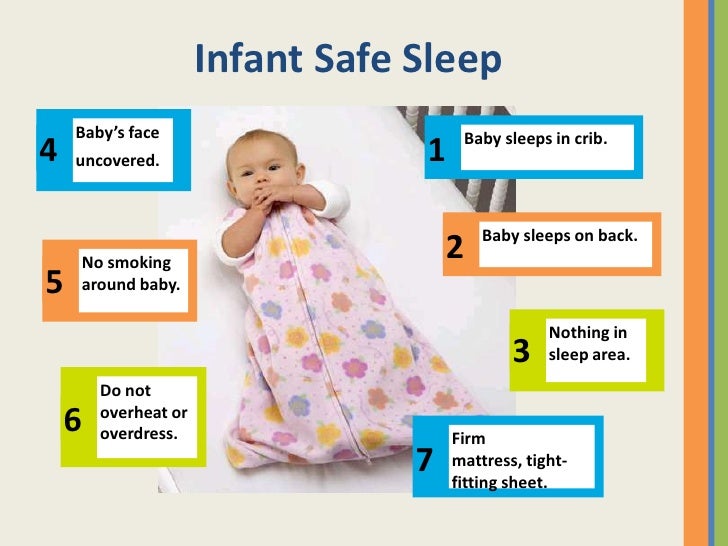 You will find answers to them in this article. Here all the nuances regarding the sleep of a newborn are considered. And the most complete information is collected. After reviewing it, you will be ready to create a sleep ritual, set an individual sleep schedule, etc.
You will find answers to them in this article. Here all the nuances regarding the sleep of a newborn are considered. And the most complete information is collected. After reviewing it, you will be ready to create a sleep ritual, set an individual sleep schedule, etc.
The article details the features of a child's sleep at different ages, from birth to 2-3 years, broken down into three-month periods. The features of behavior and sleep of each age group are described in great detail, in an exhaustive volume. nine0005
Read this article and get the information you need in full.
A number of factors affect the duration and quality of a child’s sleep:
— physiological state of health;
— psychological health;
- temperament;
- schedule.
If the baby is healthy, he is in good health, he is active and alert, but at the same time, he sleeps less than recommended, there is no reason to worry. Of course, if we are talking about minor deviations.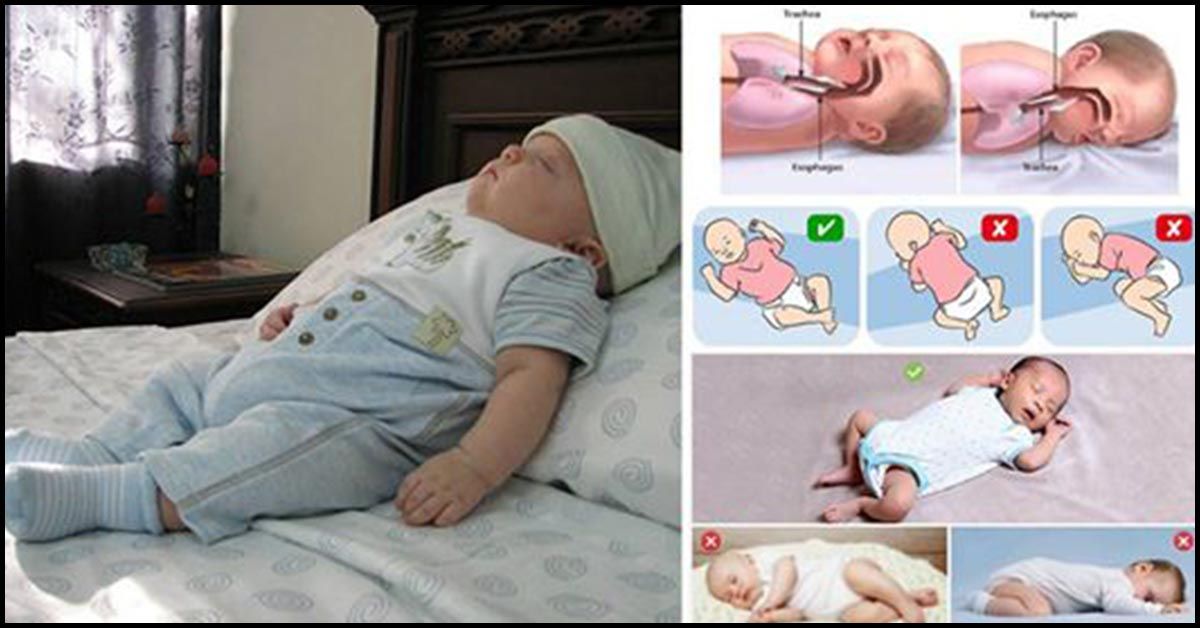 nine0005
nine0005
INFANT SLEEP FROM BIRTH TO 3 MONTHS
During the first few weeks of life, the child sleeps as much as possible - up to 18 hours a day, closer to three months this period is reduced to 16-17 hours.
At this age, the average duration of one sleep session of the baby will be no more than 4 hours, regardless of the time of day. So, mom will have to forget about a full-fledged eight-hour sleep. The main tasks at night are feeding, swaddling, during the day - playing, learning. nine0005
To help your child acquire proper sleep habits, you need to follow some guidelines.
Look for signs of baby fatigue.
Until the first two months of life, the child will not be able to stay awake for more than two hours in a row. If his activity lasts more than the specified time, overwork will set in, and the mother will have to face whims and possibly even tantrums that will not allow the child to sleep well.
It is important to learn to recognize the signs of baby sleepiness: nine0005
- the appearance of faint dark circles under the eyes;
- the baby pulls his ear;
- rubs eyes.
After a short period of time, the daily rhythm of the child will become systemic, and the mother will instinctively understand when he wants to sleep.
The baby must understand the difference between day and night.
Already at the stage of pregnancy, many women can notice that their baby is an owl. For example, parents turn off the light, but the child continues to be active. After 10-15 days of life, you can teach him to distinguish between day and night. During the day, mom should play with him, the lights should be on in the house, and everyday household noise should not be reduced (TV, washing machine, phone ringing). nine0005
At night, games should be stopped, noise should be minimized, lights should be dimmed, and games should be limited.
The child must learn to fall asleep on his own.
When an infant reaches the age of 6-8 weeks, he must learn to fall asleep without assistance. When the baby shows signs of fatigue and drowsiness, just put him in the crib. Motion sickness and feeding before bedtime quickly lead to addiction, the mother will not have time to come to her senses, as the child will get used to this way of falling asleep and it will be extremely problematic to wean him from this. nine0005
Motion sickness and feeding before bedtime quickly lead to addiction, the mother will not have time to come to her senses, as the child will get used to this way of falling asleep and it will be extremely problematic to wean him from this. nine0005
HOW LONG DOES A 3 TO 6 MONTHS BABY SLEEP?
Infants by 3-4 months of life sleep up to 16-17 hours a day. At night there is an average of 11 hours, the rest of the time is distributed 3-4 times a day. At the beginning of the period, the mother will still have to wake up 1-2 times a night for feedings, but by six months the baby will have to sleep 7-8 hours at night continuously. At this stage, experts give even more recommendations on the proper upbringing of the child and the formation of his regimen. nine0005
A clear regimen of daytime and nighttime sleep should be established.
The optimal time for going to bed at night is 19:30-20:30. If you ignore the child's prerequisites for sleep, he will overwork, and all attempts to put him to bed will end in whims and hysteria.
It will not be superfluous to plan your daytime sleep. Going to bed at the same time for 10-15 days will develop a "schedule" for the baby, according to which he will be ready to go to bed nine0005
Create a bedtime ritual.
Getting ready for bed may include taking a bath, quiet soothing games, reading fairy tales, or singing lullabies. At the end, the mother can kiss the baby, wishing "sweet dreams".
The ritual may include other events, it is important that they have a strict order and are performed at the same time every evening.
The child must be woken up in the morning.
If a night's sleep lasts more than 11 hours, experts recommend waking the baby. So he will restore the regime and there will be a desire to fall asleep throughout the day. nine0005
SLEEPING FROM HALF A YEAR TO 9 MONTHS
Sleep still takes up most of the baby's day, until 15 o'clock he will spend in his crib, snoring softly. At night, this period will be 7-8 hours continuously.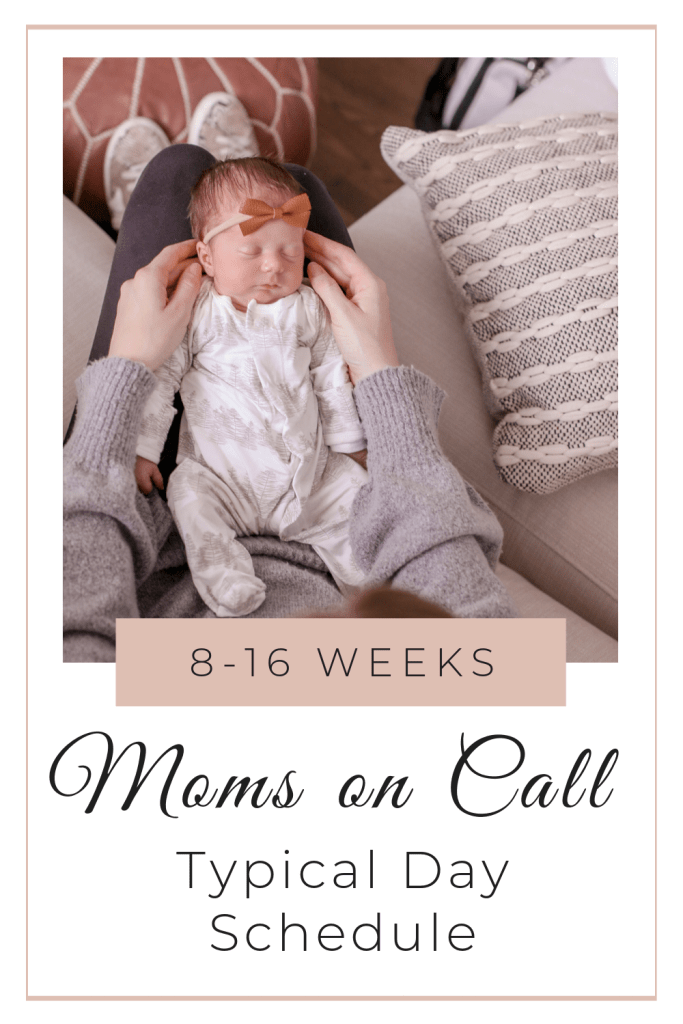 If this gap increases, it means that the baby wakes up for a short time and falls asleep on his own - this is evidence of a calm character, physical well-being and a balanced nervous system.
If this gap increases, it means that the baby wakes up for a short time and falls asleep on his own - this is evidence of a calm character, physical well-being and a balanced nervous system.
During the day, the child sleeps twice for 2 and 1.5 hours. nine0005
The previously established ritual of going to bed becomes more understandable for the child and often he himself begins to participate in it. Taking a bath, a soothing game, fairy tales and a lullaby should take place in the same sequence. Young children love consistency that they can rely on. The beginning of the obligatory ritual will show that you need to calm down and get ready for bed.
Compliance with the regimen of daytime and nighttime sleep will also improve the well-being of the child. When he eats, plays, bathes and goes to bed at strictly set hours every day, biological rhythms are adjusted, the baby eats better, falls asleep faster. He should be able to do the latter on his own, the mother should put the child to bed a few minutes before he falls asleep without connecting external factors - feeding or motion sickness.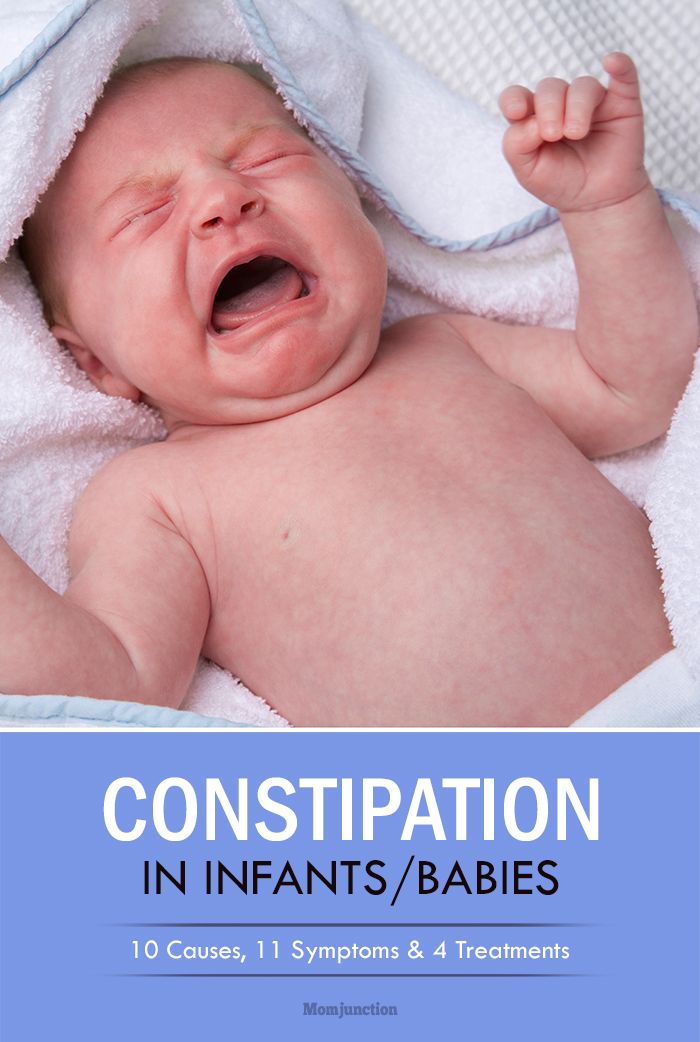 If the actions of an adult are accompanied by a crying baby, turning into a tantrum, today attempts to accustom to independent sleep should be stopped. nine0005
If the actions of an adult are accompanied by a crying baby, turning into a tantrum, today attempts to accustom to independent sleep should be stopped. nine0005
CHILD MONTHS TO ONE YEAR OF AGE. SLEEP RULES
A full night's sleep for young children during this period can be 11 hours. It is important that the baby gets enough sleep, this is an important condition for its proper development. Daytime sleep takes place in two sessions of 1.5 and 2 hours. The sleep schedule during the daytime should have strict boundaries. Sliding threatens problems with falling asleep and frequent waking up at night.
What sleep problems can arise? nine0005
The child is already quite developed, he sits confidently, rolls over, crawls, and maybe even walks. He makes a lot of effort to move confidently, excessive overexcitation is fraught with problems with falling asleep and frequent awakenings at night.
If the baby does not calm down on his own and continues to be naughty, you need to approach and calm him down.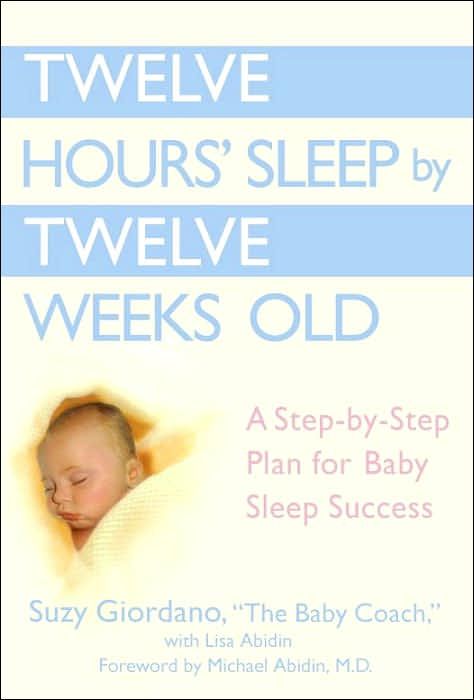
SLEEP FROM A YEAR TO 1.5 YEARS
Until the child is 2 years old, he should sleep up to 14 hours a day: 11 at night and 3 during the day. During the period from 12 to 18 months, the number of sessions of sleep during the day should gradually decrease from two to one. The mode of daily one-time 1.5-2 hour sleep will last up to 4-5 years. nine0005
To make the transition less problematic, days with two naps should alternate with one nap.
Tips for putting your baby to bed.
As before, with the approach of the time of night rest, the baby should calm down. If a child needs a splash of excess energy, he can run a little or play active games with a smooth transition to calm ones. Even if you spend the night away from home, you can’t deviate from the “night scenario”. nine0005
Possible difficulty falling asleep.
The kid is so happy with his new skills - standing and walking, that he wants to do them even when it's time to sleep.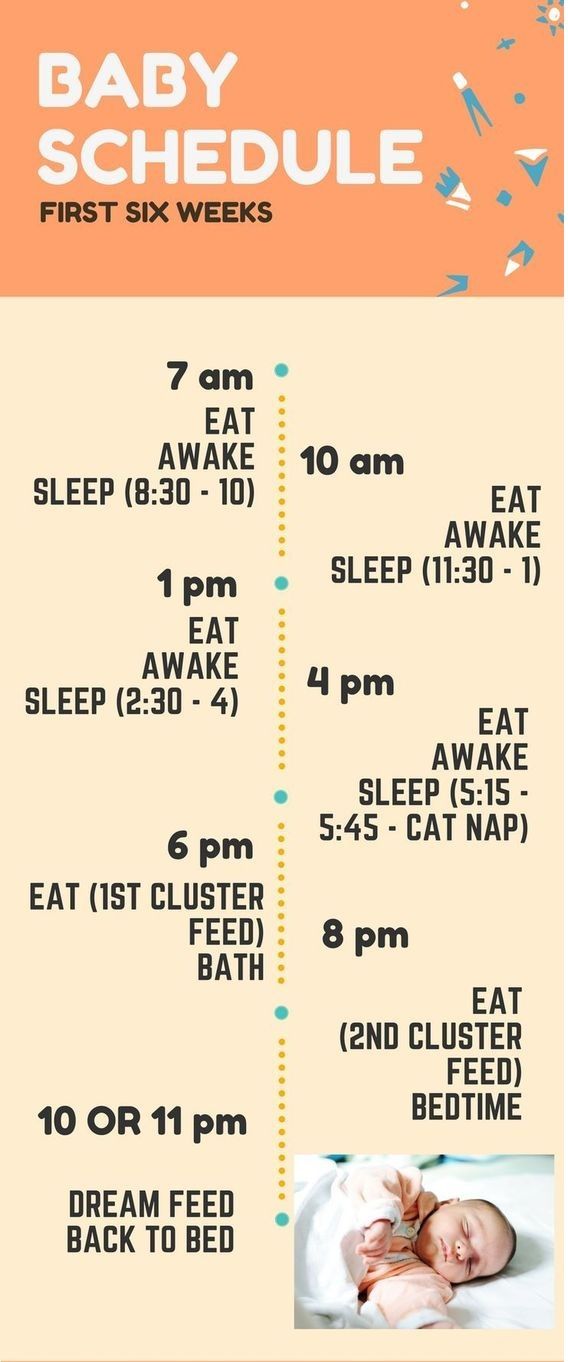 If he resists and does not want to calm down, experts advise leaving the baby for a couple of minutes in a room alone, most likely, he will calm down on his own.
If he resists and does not want to calm down, experts advise leaving the baby for a couple of minutes in a room alone, most likely, he will calm down on his own.
Night awakenings, the inability to calm down on one's own and the call of the mother should not be ignored. If the baby is in the crib, it must be laid down. nine0005
SLEEP AND WAKE PATTERNS FOR AN 18 TO 24 MONTHS BABY
The optimal sleep time at night is up to 12 hours, which should be preceded by a 2-hour afternoon nap. If it is still difficult for a child to give up two sessions of daytime sleep, do not interfere with this.
If the baby has developed negative associations with sleep over the past few months, the mother should help him cope with them.
For example, if going to bed is preceded by feeding, motion sickness, or another external factor, waking up at night, the child will not be able to fall asleep on his own if the mother is not there. Wean him out of this scenario as soon as possible.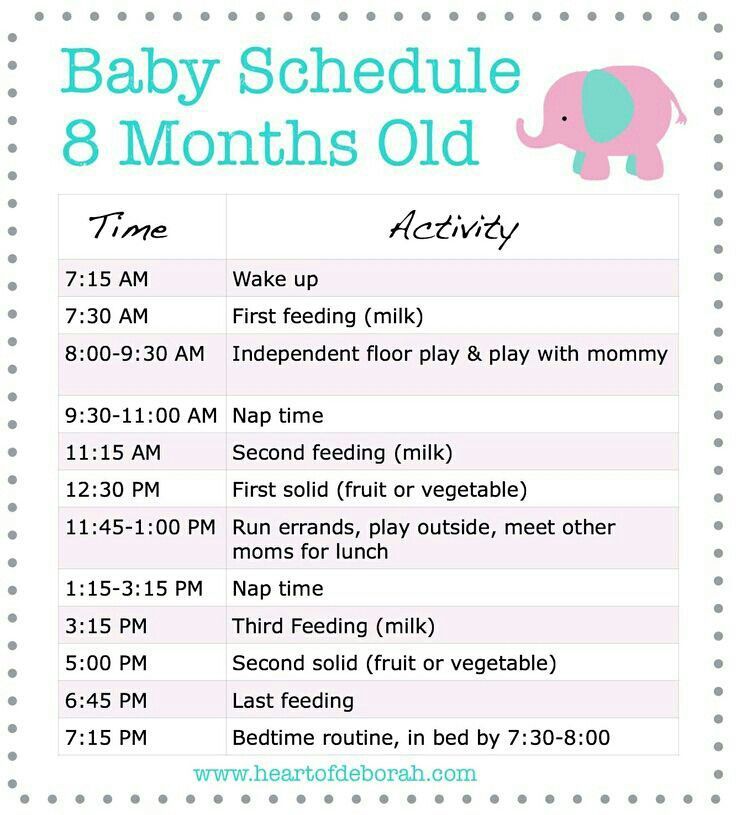 To do this, it is necessary to put the baby to bed when he is sleepy, but has not yet plunged into the deep sleep phase, so that he finally falls asleep in the crib. nine0005
To do this, it is necessary to put the baby to bed when he is sleepy, but has not yet plunged into the deep sleep phase, so that he finally falls asleep in the crib. nine0005
In the period from 1.5 years and older, the child begins to test the limits of his independence. Every action is accompanied by resistance in an effort to control the world around them. To reduce the confrontation will allow the choice that the child will make whenever possible. For example, it would not be superfluous for mom to ask what fairy tale he would like to hear, what pajamas to wear. Two or three alternatives should be offered, provided that the adult is satisfied with either option.
Wrong: "Will you go to bed?" With a probability of 99%, an affirmative answer “No” will follow.
Correct: “Will you go to bed now or in 5 minutes?”. The baby will be glad that he is given a choice, and the mother wins regardless of his choice.
Possible difficulty falling asleep.
Children in the age group between 18 and 24 months can stand up on the bed at night, which is fraught with a painful and traumatic fall.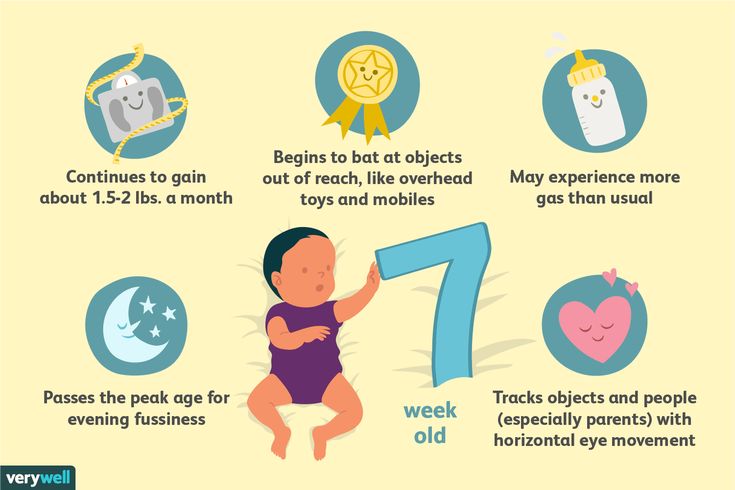 Parents should protect the baby from adverse consequences in the following ways: nine0005
Parents should protect the baby from adverse consequences in the following ways: nine0005
- lower the level of the mattress, so the walls of the bed will become higher;
- extra pillows and toys that can be used by the baby as a delivery should be removed from the crib;
- the mother should not encourage the child's attempts to get out of bed, it is important to explain in a calm, neutral voice that this cannot be done and put back into bed;
- to make the environment safe, if it is not possible to prevent the child from getting out, you should make sure that after making the next maneuver, he will remain unharmed. Soft pillows around the bed and on nearby boxes will make landing more comfortable. nine0005
ASPECTS OF SLEEP AND WAKEENING IN CHILDREN 2 TO 3 YEARS
Most babies at this age go to bed in the evening at 20:00-21:00 and wake up at 7:00-8:00 in the morning. Afternoon nap is still 1.5-2 hours.
The peculiarity of the sleep of children under the age of four in "rapid" sleep, leading to their frequent awakening.
